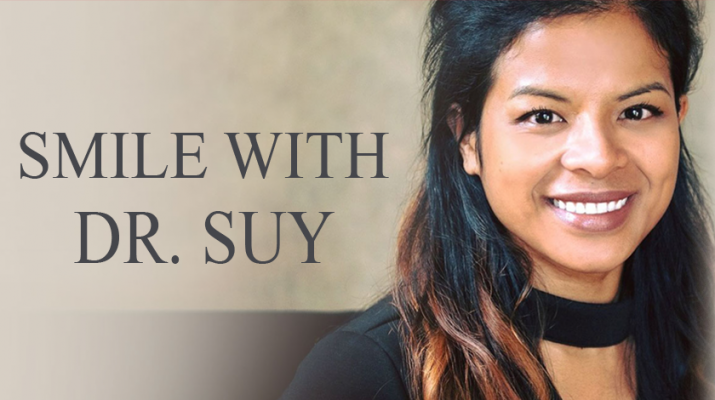Got a question in regard to oral health? Here are some answers!
By Dr. Salina Suy
“Can I ask you a silly dental question?”
This is the question I hear the most from many of my patients and the truth is, no question you ask is silly! Part of my job is patient education and oral hygiene instructions. It is something I pride myself in as I provide an honest and straightforward approach.
Learning why and how things happen is essential to what motivates us to stay healthy.
Here is a quick overview for common questions I am asked:
‘How do cavities happen?’
Cavities are also known as dental caries and/or tooth decay — the “holes” in your teeth.
So what causes cavities?
Cavities are caused by the breakdown of the teeth’s hard tissue, enamel, due to acid production by the mouth’s bacteria. The bacteria eat the sugars that are found in our food that we leave on our teeth after we eat.
Basically, bacteria on your teeth eat the sugar in the mouth. They produce acid from digesting the sugars and the acid dissolves your teeth — that is the cavity process.
‘What does gum disease mean?’
Gum disease is formally known as periodontal disease. Gingivitis is the first stage in gum disease; it is gum inflammation and reversible.
Gingivitis precedes true gum disease, periodontitis, which is not reversible.
The cause of periodontal disease is the interaction between bacteria found in plaque — the sticky film that collects on your teeth — and the body reacting to the plaque. When plaque is not removed, the toxins from it irritate the gums and cause inflammation.
The inflammation in the gums causes them to grow away from the teeth, separating teeth, creeping downward from teeth and destroying the bone that holds the teeth.
When the plaque is not removed, it will turn hard into what is known as tartar. This tartar becomes a barrier between the teeth and gums, pushing away the attachments of the teeth to the bone.
A dental professional — a dental hygienist or dentist — can only remove tartar.
Periodontal disease is a major cause of tooth loss in adults. When the disease is untreated, the gums and bone resorb around teeth, causing teeth to lose their bond to bone and resulting in possible loss.
‘What should I use and how?’
What can you do to prevent this?
The good news is cavities and periodontal disease are very preventable. Along with making good diet choices, a good oral hygiene regimen is key for keeping your teeth healthy.
Patients with a diet higher in sugar are at a greater risk of developing cavities. Along with how much sugar is consumed, snacking leads to an increased chance of developing cavities as well. Patients who snack less have less risk of getting cavities.
Dentists recommend brushing at least twice a day — once when we wake up and once before bed. Flossing daily will help remove food and plaque from in between the teeth that the brush cannot reach.
For those who want more protection, a daily antiseptic and fluoride rinse may be beneficial as well. Regular check-ups are important, not only because we check for tooth decay and gum disease, but also to see signs of systemic diseases since your mouth is a good indicator of your overall health.
Regarding products to recommend, although there are a lot of companies out there, only a few earn the American Dental Association seal of approval.
The ADA seal is awarded only to products that it has reviewed extensively, tested clinically and supported by scientific evidence.
That being said, many products cannot afford the seal of the ADA and may be of great value but still need time to prove their performance through testing.
A few things I would steer away from:
— Charcoal-based products: Things that are abrasive should not be used on tooth structure
— Whitening with a light: Scientifically unnecessary and there are easier ways to whiten
— Straightening your own teeth: Not the greatest idea because you don’t know if you are doing harm to yourself if you are not properly being monitored.
— Snap-on smiles: These faddy gimmicks will be a waste of your money. Instead, consider getting dental implants if you have missing teeth. In addition, you may consider invisalign braces to help correct or improve the alignment of your teeth. Visit your cosmetic dentist today for an invisalign treatment.
— Drug store mouth guards: The truth is, they are OK but there is nothing more comfortable than mouth guards that are custom fitted to your mouth that you will actually use. Guards are great for grinding, sports and protecting your dental work.
Remember to brush your teeth and use your smile to change the world!
• Salina Suy is a health and wellness advocate and general dentist in the Utica Business Park. Want to learn more? Visit Facebook or Instagram: @smilewithdrsuy or www.smilewithdrsuy.com.

